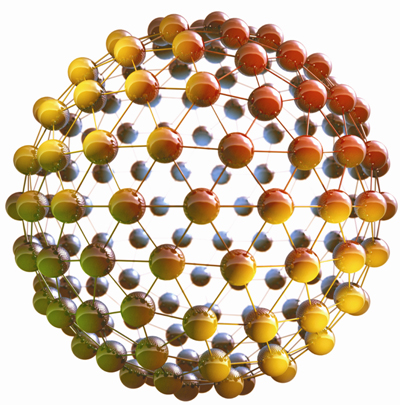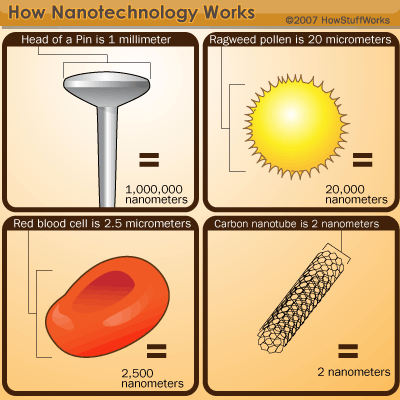NanoMaterials - a Definition
Nanomaterials are chemical substances or materials that are manufactured and used at a very small scale (down to 10,000 times smaller than the diameter of a human hair). Nanomaterials are developed to exhibit novel characteristics (such as increased strength, chemical reactivity or conductivity) compared to the same material without nanoscale features. Hundreds of products containing nanomaterials are already in use. Examples are batteries, coatings, anti-bacterial clothing etc. Analysts expect markets to grow to hundreds of billions of Euros. Nano innovation will be seen in many sectors including public health, information society, industry, innovation, environment, energy, transport, security and space
 Nano Material - Safe Clothing Limits Sports Injuries
Nano Material - Safe Clothing Limits Sports Injuries
Good things come in small packages. the unique properties of nanomaterials and structures on the nanometer scale have sparked the attention of materials developers. Incremental shifts in product performance using these materials-for example, as fillers in plastics, as coatings on surfaces, and as UV-protectants in cosmetics-are already occurring. The technology holds more promise for the future, though, and is expected to bring more disruptive changes to both products and markets.
You might also like
| Nanomaterials - the Future Technology Nanomaterials - Applications for Nanotechnology Nanomaterials... | What is Nanotechnology? Nanotechnology and Applications Nanotechnology... | Nanotechnology in Food Could nanotechnology make a food? Nanotechnology... | Impact of Nanotechnology Nanotechnology Impact The impact of nanotechnology... |




 Alloy Suppliers
Alloy Suppliers
 Aluminum
Aluminum
 Aluminum Extrusions
Aluminum Extrusions
 Copper-Brass-Bronze
Copper-Brass-Bronze
 Nickel
Nickel
 Magnets
Magnets
 Stainless Steel
Stainless Steel
 Stainless Steel Tubing
Stainless Steel Tubing
 Steel Service Centers
Steel Service Centers
 Titanium
Titanium
 Tungsten
Tungsten
 Wire Rope
Wire Rope